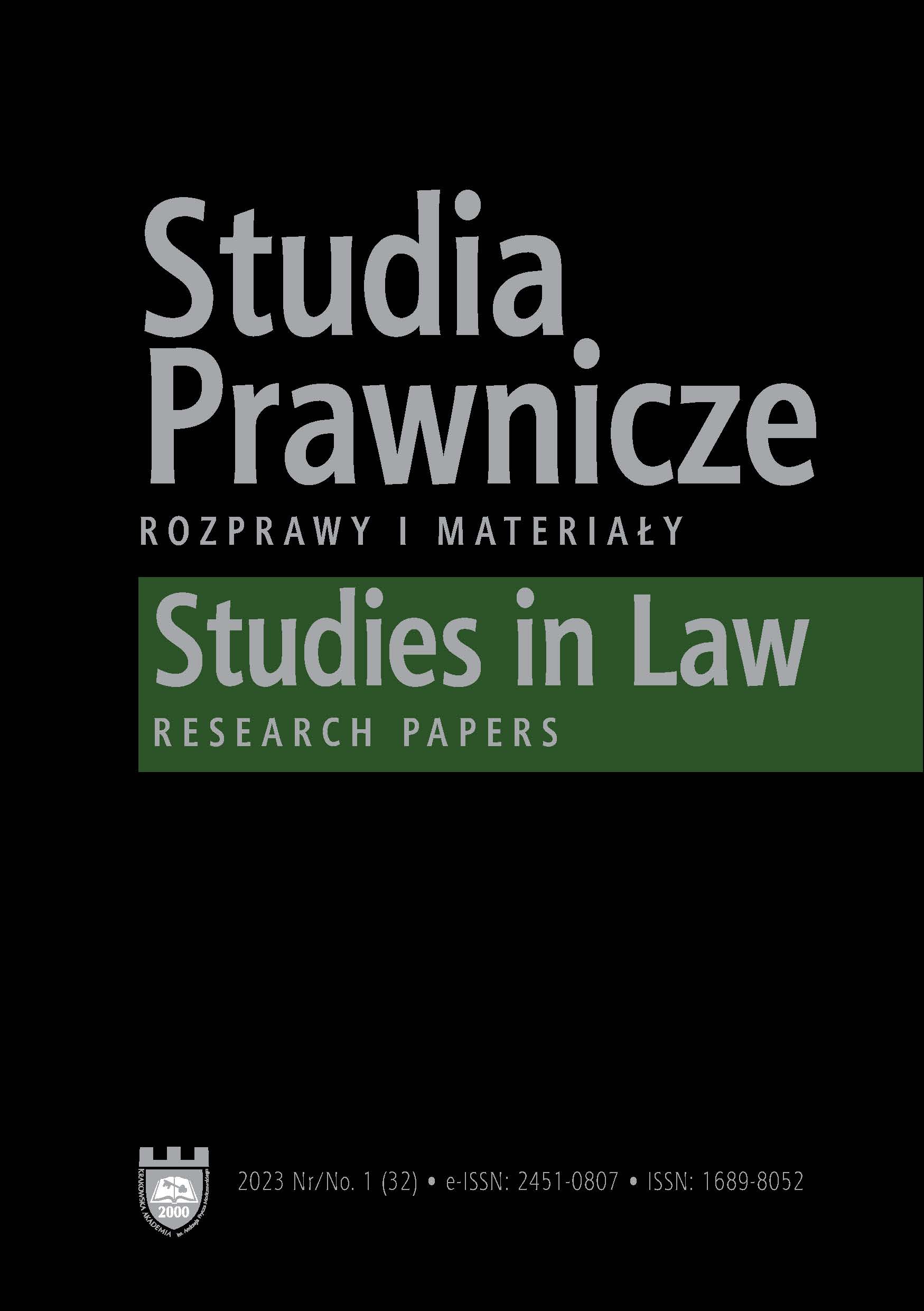Ochrona dobrego imienia jednostki samorządu terytorialnego a prawo do wolności wypowiedzi – glosa aprobująco-krytyczna do wyroku Sądu Najwyższego z dnia 13 stycznia 2021 r., III CSKP 18/21
Protection of the good name of local self-government entities and the right to freedom of expression – approval-critical glossary to the judgment of the Supreme Court of january 13, 2021 III CSKP 18/21
Author(s): Adam BiałasSubject(s): Law, Constitution, Jurisprudence, Philosophy of Law, Sociology of Law, Administrative Law
Published by: Oficyna Wydawnicza AFM Uniwersytetu Andrzeja Frycza Modrzewskiego w Krakowie
Keywords: konflikt dóbr prawnych,wolność wypowiedzi; prawo prasowe; publiczna osoba prawna; collision of legal goods; freedom of expression; press law; a public legal person
Summary/Abstract: The commented judgment of the Supreme Court (III CSKP 18/21) is related to the fundamental standard of a democratic state, which is freedom of expression and its possible conflict with the right to protect the good name of a public legal person. The author accepts both theses of the judgment, however, he is critical of part of the content of the justification of the judgment, evaluating the judgment from the normative and praxeological perspectives. The fact of granting public legal persons, including local government units, the right to protection of legal goods, catalogued in relation to the subjective status of these units and the specificity of their normative structure, should not raise objections. However, a significant problem arises at the moment of collision, and thus the need to weigh up between the protection of the dignity and good name of a public legal person and the right to freedom of expression, when in the course of journalistic work, articles with content unfavourable to a public legal person are published. As a result of the analysis conducted with the use of formal-dogmatic and comparative methods related to the analysis of national and international legal acts relating to the analyzed issues, it can be concluded that if the analysis of the situational context of a statement gives it a place within the framework of permitted criticism dictated by the protection of the social interest, it seems to fulfil the legitimate acknowledgement of the absolute primacy of freedom of expression over the protection of the good name of a public legal person.
Journal: Studia Prawnicze: rozprawy i materiały
- Issue Year: 32/2023
- Issue No: 1
- Page Range: 241-255
- Page Count: 15
- Language: Polish

